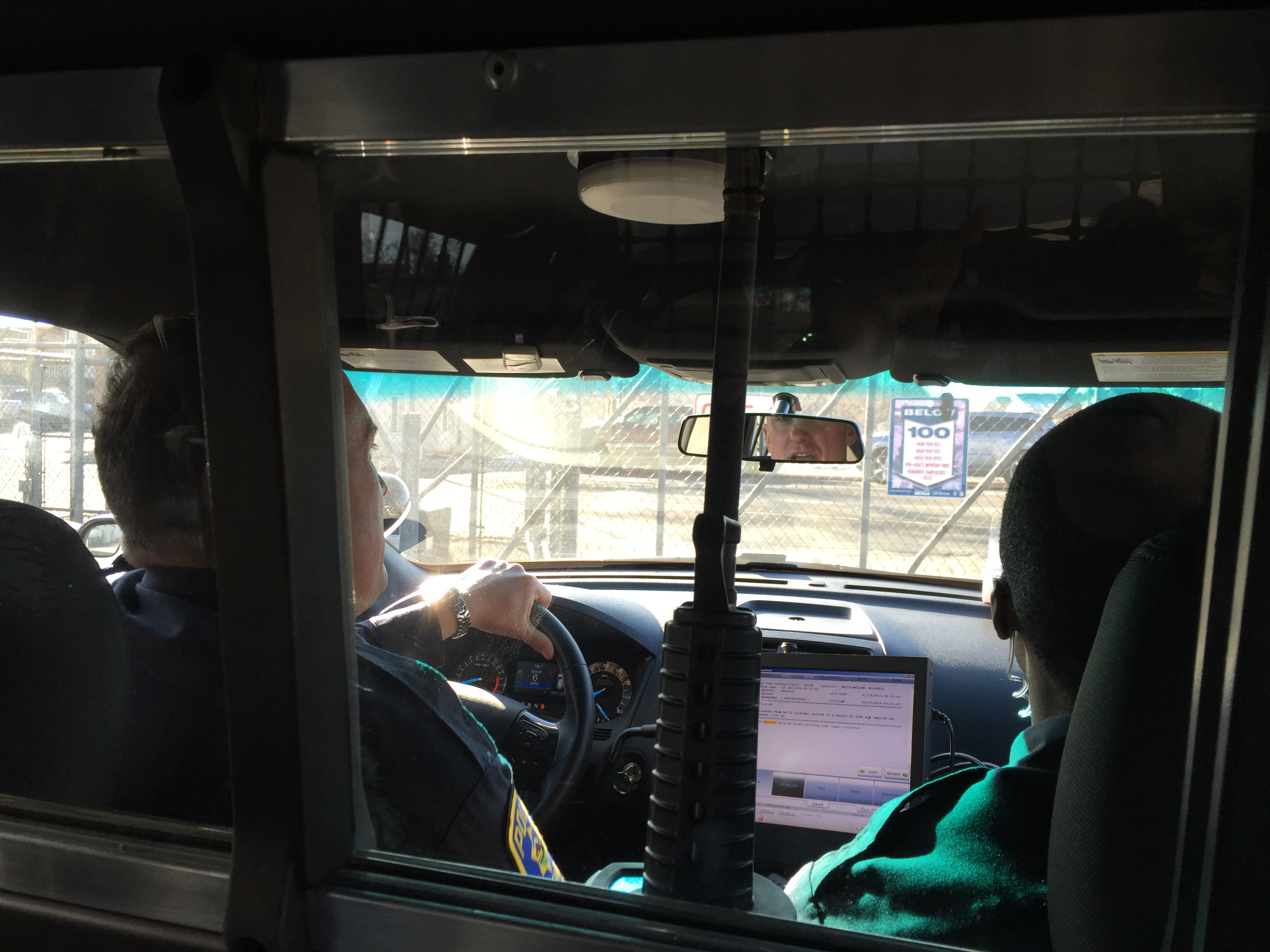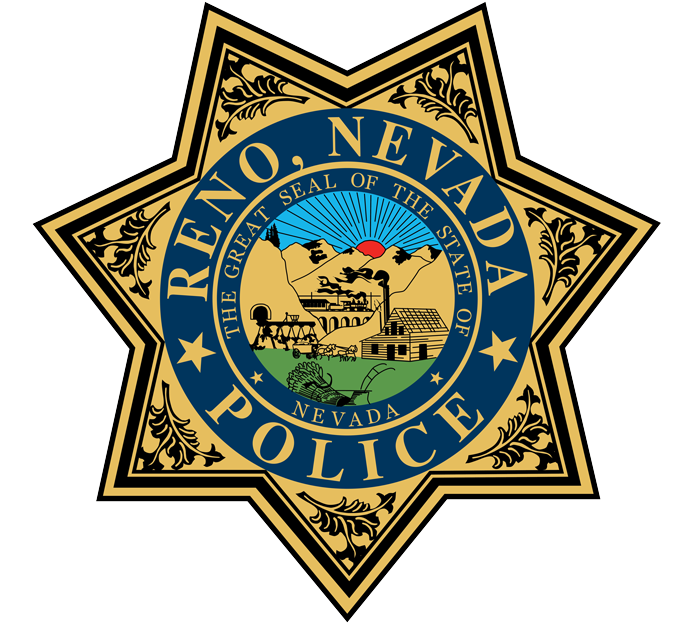
In 2000, Chief Jerry Hoover received federal funding to form a team of training experts to create a new post-Academy training program. They developed an officer training program that emphasizes critical thinking and problem solving. Called The Reno Model, this program recognizes the importance of problem-solving skills in training a successful police officer. The Reno Model focuses on adult learning methods and other learning constructs to create a positive experience for the trainee and trainer.
Our PTO Program exists in conjunction with a Community-Oriented Policing and Problem Solving (COPPS) philosophy. While it is not mandatory for an agency to be a community-policing organization to use this model, that was the impetus for its creation.
There are two components to community policing: community partnership and problem-solving.

Community Partnership: Practiced in varying degrees by almost half of the law enforcement agencies in the U.S., this value-driven approach to providing police services functions at the neighborhood level and its success is tied to changes in police organizational culture. Community values must be determined and jurisdictions delineated by social boundaries rather than statistical areas. Law enforcement agencies must support their basic social institutions such as schools, recreation centers, and other groups providing valuable community services.
Problem-Solving: This component centers on a belief that crime and disorder can be analyzed as problems that are the result of underlying conditions, and that if these conditions are changed, the problems may be solved. Traditionally, police are seen as "crime fighters" as opposed to "problem solvers." Community-Oriented Policing and Problem Solving tries to fix the source of criminal activity rather than just try to preserve the peace by arresting and prosecuting offenders.
This sounds like such a great concept--how come everybody doesn't do this?
Community Oriented Policing and Problem Solving (COPPS) requires a basic shift from traditional policing methods. For one thing, supervisors and managers must change their perspective as it pertains to leadership, and give street officers more authority. The inherent flexibility of the COPPS philosophy will not work for certain agencies, which demand a military-style structure and strong documentation in their training programs.
The trainers assign "street" problems to trainees and have them learn about policing in the context of solving those problems. Trainees work through responses with the help of their Police Training Officer.
The model uses a number of tools, including a learning matrix and problem-based learning exercises. Below is a sample of a learning matrix, showing "core competencies," which are specific skills, knowledge, and abilities that have been identified as essential for good policing.
THE LEARNING MATRIX:
-
Phase A - Non Emergency Incident Response
CORE COMPETENCIES
Police Vehicle Operations: A1
Conflict Resolution: A2
Use Of Force: A3
Local Procedures, Policies, Laws, Philosophies: A4
Report Writing: A5
Leadership: A6
Problem-Solving Skills: A7
Community Specific Problems: A8
Cultural Diversity and Special Needs Groups: A9
Legal Authority: A10
Individual Rights: A11
Officer Safety: A12
Communication Skills: A13
Ethics: A14
Lifestyle Stressors/Self Awareness/Self Regulation: A15
Learning Activities:
- Introduction Of Neighborhood Portfolio Exercise
- Problem Based Learning Exercise
Evaluation Activities:
- Weekly Coaching and Training Reports
-
Phase B - Emergency Incident Response
CORE COMPETENCIES
Police Vehicle Operations: B1
Conflict Resolution: B2
Use Of Force: B3
Local Procedures, Policies, Laws, Philosophies: B4
Report Writing: B5
Leadership: B6
Problem-Solving Skills: B7
Community Specific Problems: B8
Cultural Diversity and Special Needs Groups: B9
Legal Authority: B10
Individual Rights: B11
Officer Safety: B12
Communication Skills: B13
Ethics: B14
Lifestyle Stressors/Self Awareness/Self Regulation: B15
Learning Activities:
- Continuation Of Neighborhood Portfolio Exercise
- Problem Based Learning Exercise
Evaluation Activities:
- Weekly Coaching and Training Reports
-
Phase C - Patrol Activities
CORE COMPETENCIES
Police Vehicle Operations: C1
Conflict Resolution: C2
Use Of Force: C3
Local Procedures, Policies, Laws, Philosophies: C4
Report Writing: C5
Leadership: C6
Problem-Solving Skills: C7
Community Specific Problems: C8
Cultural Diversity and Special Needs Groups: C9
Legal Authority: C10
Individual Rights: C11
Officer Safety: C12
Communication Skills: C13
Ethics: C14
Lifestyle Stressors/Self Awareness/Self Regulation: C15
Learning Activities:
- Continuation Of Neighborhood Portfolio Exercise
- Problem Based Learning Exercise
Evaluation Activities:
- Weekly Coaching and Training Reports
-
Phase D - Criminal Investigation
CORE COMPETENCIES
Police Vehicle Operations: D1
Conflict Resolution: D2
Use Of Force: D3
Local Procedures, Policies, Laws, Philosophies: D4
Report Writing: D5
Leadership: D6
Problem-Solving Skills: D7
Community Specific Problems: D8
Cultural Diversity and Special Needs Groups: D9
Legal Authority: D10
Individual Rights: D11
Officer Safety: D12
Communication Skills: D13
Ethics: D14
Lifestyle Stressors/Self Awareness/Self Regulation: D15
Learning Activities:
- FinalNeighborhood Portfolio Exercise
- Problem Based Learning Exercise
Evaluation Activities:
- Weekly Coaching and Training Reports
For instance, Phase A refers to Non-Emergency Incident Responses, and designator A8 next to the Core Competency for "Community-Specific Problems" lists the following skills:
- Trainee will identify different community-specific problems.
- Trainee will demonstrate proficiency in creating partnership and solving problems specific to the community or their geographic assignment.
Each designator (A1 through D15) has a corresponding list of skills required to achieve competency in the areas listed. Additionally, there are a series of learning activities tied to each phase of study.

